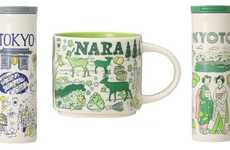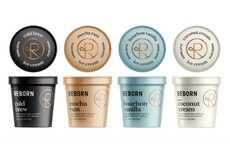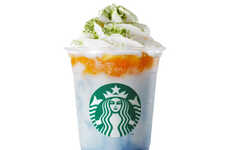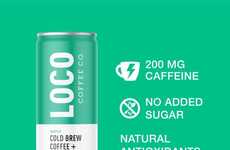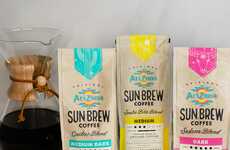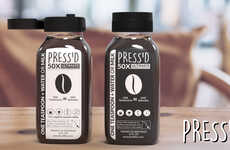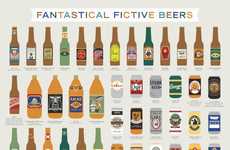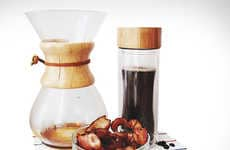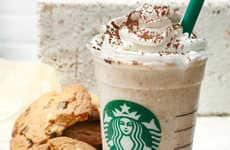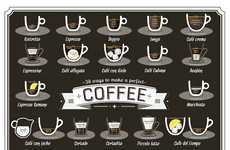
Ryoko Itawa Made a Coffee Map that Reveals Coffee-Loving States
Megan Facciuolo — May 7, 2014 — Lifestyle
References: en.ilovecoffee.jp & designtaxi
Ryoko Itawa of 'I Love Coffee' created a coffee map of the US that acts as an infographic for the most and least coffee-obsessed states and cities.
The statistics depicted on the map were put together by Men's Health. The stats take into account the percentage of households that own coffeemakers and buy coffee, the household average spent on coffee, the amount of coffee shops per capita, the percentage of people who drink coffee and those who drink over five cups a day.
Surprisingly, Portland, Maine beat out Seattle — which is the home to coffee chains like Starbucks and Seattle's Best — for the most caffeine-obsessed city in America. Contrarily, Jackson, Mississippi contains the least amount of coffee drinkers.
The statistics depicted on the map were put together by Men's Health. The stats take into account the percentage of households that own coffeemakers and buy coffee, the household average spent on coffee, the amount of coffee shops per capita, the percentage of people who drink coffee and those who drink over five cups a day.
Surprisingly, Portland, Maine beat out Seattle — which is the home to coffee chains like Starbucks and Seattle's Best — for the most caffeine-obsessed city in America. Contrarily, Jackson, Mississippi contains the least amount of coffee drinkers.
Trend Themes
1. Regional Coffee Consumption - There is an opportunity to innovate and personalize coffee products to cater to the unique coffee culture in different regions.
2. Coffee Shop Density - Entrepreneurs can disrupt the coffee industry by opening unique and independent coffee shops in cities with low coffee shop densities.
3. Caffeine Awareness - Companies can disrupt the health and wellness industry by offering products that educate and encourage people to consume caffeine in a more mindful and responsible way.
Industry Implications
1. Coffee - Coffee companies can use the information on the coffee map to focus their marketing and product development efforts in specific regions and cities.
2. Hospitality - Hotels and restaurants can differentiate themselves by offering locally sourced and regionally inspired coffee options.
3. Digital Marketing - Marketing firms can help coffee companies use geotargeting and social media to personalize marketing campaigns and reach coffee lovers in specific regions.
1.1
Score
Popularity
Activity
Freshness

